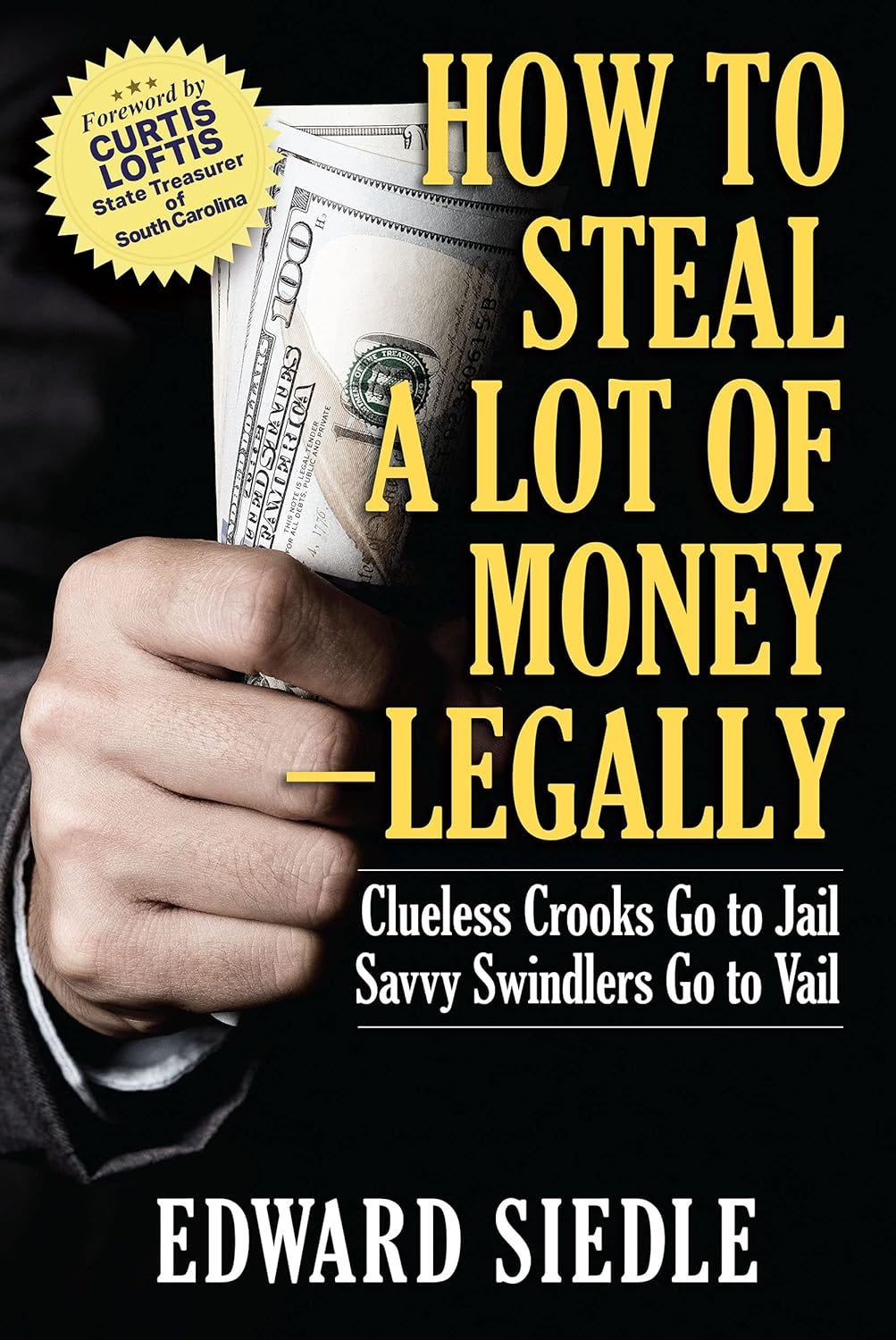World's Worst Financial Fraudsters "Ain't Worth Killin"
There's nothing to gain and lots to lose exposing the world's worst investment scammers.

I once joked with an editor at Bloomberg News, “You know, it wouldn’t be hard to quickly write a series of articles exposing dozens of obvious investment swindles. I would call it, “30 Investment Scams in 30 Days.” Some of the fraudsters are even advertisers on Bloomberg,” I observed. He laughed and said many of his fellow financial reporters were aware of the problem.
My point was: Investment scamming is pervasive. As I note in my bestseller, How To Steal A Lot of Money—Legally:
While forensic and fraud accounting experts estimate that the cost of fraud globally amounts to trillions annually, the true figure is exponentially greater. The overwhelming majority of investment scamming is not included in global estimates because fraud experts with accounting backgrounds are not trained to identify the myriad forms of scamming and aren’t looking for it. For example, the forms of harm to investors I focus upon are not generally factored in the overall damage calculations by accountants focused upon numbers alone. My estimate—based upon decades of experience—is that well over half of all investing involves scamming of one sort or another.
While it may be comforting to believe platitudes like “the vast majority of people in finance are decent, honest and hard-working,” that’s imply not true. Take it from someone who’s spent a lifetime investigating trillions in frauds: There’s more than just a “few bad apples” in this rotten business.
To make matters worse, the worst cheats often escape prosecution because there is simply nothing to gain and lots to lose from exposing them.
I am reminded of the words of singer/songwriter/actress Dolly Parton. In a CNBC interview a decade ago, she was asked whether her net worth really amounted to a staggering $400 million. She laughed and coyly responded, “Hell, some folk say I ain’t worth killin!”
As a forensic investigator, I learned decades ago that some outrageous fraudsters “ain’t worth killin!” That is, there is nothing to gain and lots to lose exposing them.
The worst cheats often escape prosecution because there is simply nothing to gain and lots to lose from exposing them.
As a forensics expert and whistleblower, I have received record-breaking financial awards exposing household names which engage in investment wrongdoing. However, under the SEC’s whistleblower program, whistleblowers are entitled to receive an award of 10-30% of the government’s recovery from wrongdoers… only if monetary sanctions collected by the regulator agency exceed $1 million.
The trouble is that when the worst scams are exposed, there’s rarely any money left for the SEC to recover. So, whistleblowers get nothing. While the SEC whistleblower program did not exist at the time of the $50 billion Madoff scandal, under the program’s rules today a Madoff whistleblower would get nothing because Madoff never paid any fines to the SEC.
Under the SEC whistleblower program’s rules today a Madoff whistleblower would get nothing because Madoff never paid any fines to the agency.
Likewise, civil suits against the worst fraudsters are often not worth pursuing because they have few assets. As I’ve noted in some of my investigations of our nation’s largest public pensions, some firms handling hundreds of billions in government workers’ retirement savings openly acknowledge they intentionally keep little money in their coffers so as to discourage litigation. That is, so they “won’t be worth killin.”
Over the decades I’ve also observed that the worst scammers are often so unprofessional that they are unaware of the industry regulations they are violating, or don’t take the rules seriously. When confronted with their transgressions, they’ll fight to the death because they don’t know any better.
Finally, and most important, I have learned that scammers who literally “have nothing to lose,” i.e., who will be financially and reputationally ruined if exposed, are most likely to resort to violent, extreme behaviour. Large, deep-pocketed, well-known established financial institutions rarely make violent threats—the crazies do.
So, if you’re looking for an explanation why financial fraud is so pervasive, part of the answer is that there's nothing to gain and lots to lose exposing the world's worst investment scammers.
That’s why financial rewards and whistleblower protections are critical to the crime-fighting effort.




Keep up the great work...it is important!
There should be a National Organization to advise and support retired State workers and teachers who have been victimized by Pension Raiders.